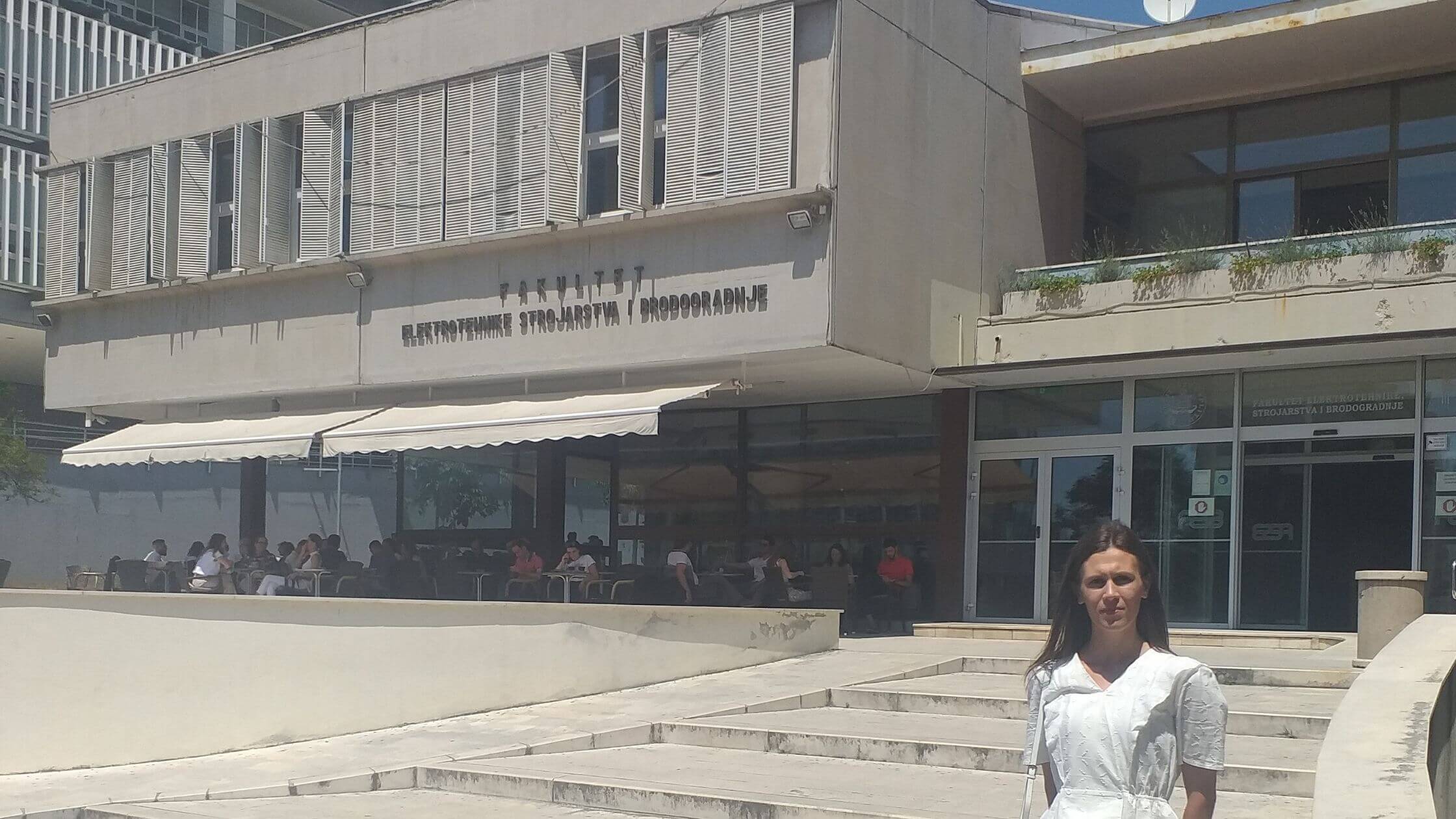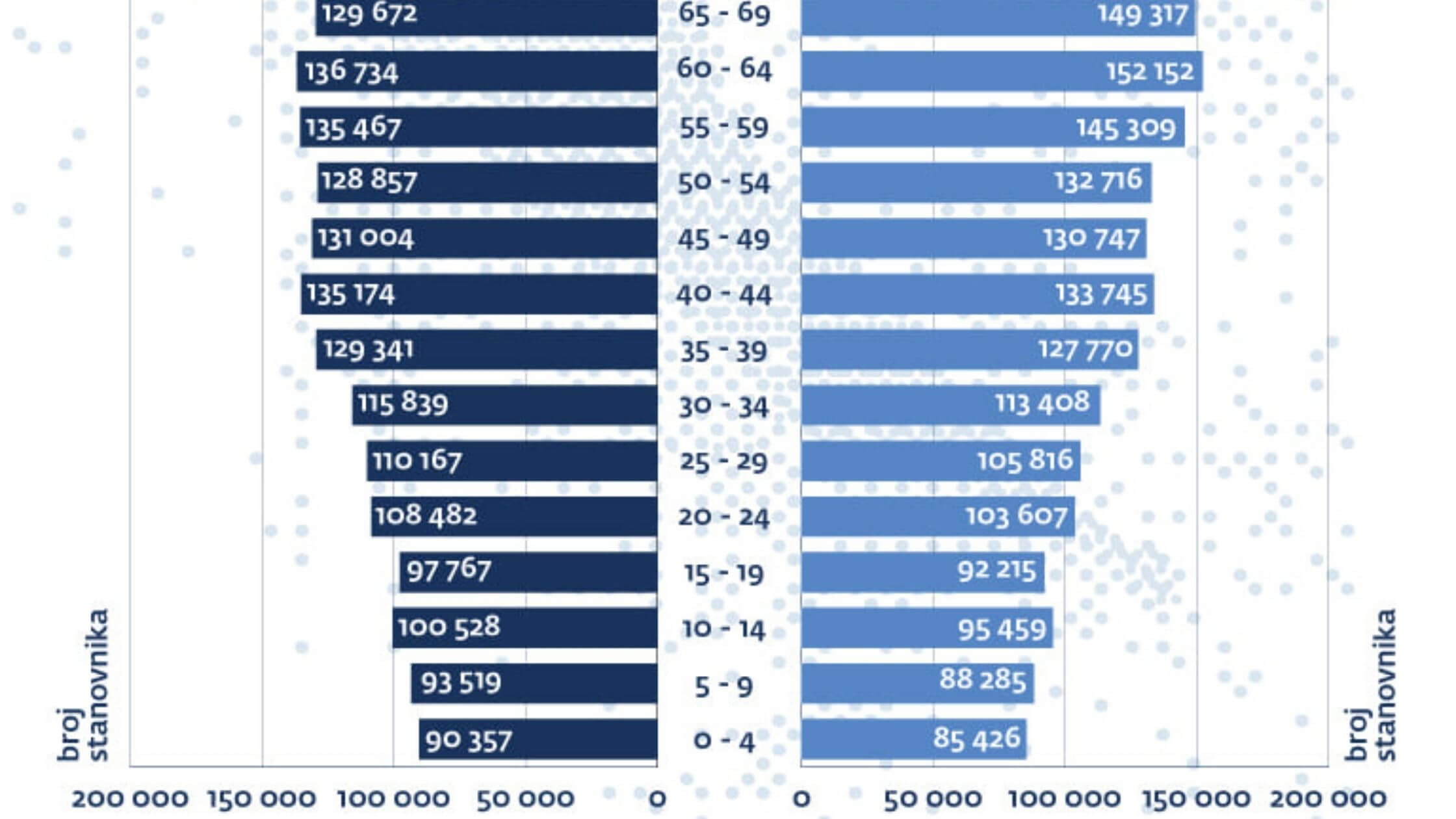Croatian Conversation: 5 Years Ago There Were Almost no Women, Today it’s 50/50
23 March 2022 - Although progress has been made over the past 10 years on gender equality within Croatia and the EU, admittedly the road ahead is still a long one. In this episode of Croatian Conversation, I chat with two women in the Croatian STEM industry to get a grounded perspective on some of these issues, and improvements made over the years.
I’d like Total Croatia News readers to warmly welcome two highly accomplished women, Ivona and Nikolina, in this new episode of Croatian Conversation. Ivona is a final year computer science student at the University of Split, while Nikolina is a full-stack developer working for an international telecommunications software firm.
We’ll be hearing their perspectives on working in the STEM industry, the changing attitudes towards women in STEM, and of leaving Croatia to seek greener pastures.
Read on as we chat about positive change, career options in Dalmatia, cheap cafeteria lunches, family influences, and more.

Gender equality in STEM industries is improving. (Image: Pexels)
Thank you both for doing this! How did you come to learn about software engineering and why choose a career, or study in this field?
N: Basically, from primary school, I was good at math and physics, and it was like “Okay. I don't want to be a teacher”, and I always had problems with Croatian and with English, so I started looking more at this (technology) industry.
Also, I was deciding between medicine and engineering. When I was little, I said that I will be a kinesiologist, with diet, nutrition, and working out, but unfortunately, I didn’t have the marks (grades) for medicine.
And what about you Ivona, kind of the same outlook?
I: Actually, I was quite the opposite. I was more about languages. Yeah, but there was also a kind of, well, let’s call it a problem. I was raised in a family where everyone went to school related to some kind of IT (information technology).
My father always said that my mother is the reason why I didn't do the same and did languages instead. She said going to high school for computer science or electronics, there were a lot of men, and she didn't allow that. She told me that I would be the only girl in that school, and that might be a problem.
So, I didn't know what the next step would be for me. Even in primary school, between languages and math, I was actually good at both so, I decided to go to gymnasium for French and English.
N: I learned Italian but forgot everything. Maybe now I can still understand something. But yeah, it was bad.
Right, so you (N) liked math and physics? Yeah. And you (I) were more into languages?
I: Yeah. I wasn't sure what I wanted to do with my life (career wise). So, I just decided, “Oh, I’m good at languages”. I even studied Italian; it was cool, but when I went to gymnasium (high school), I figured out that it (languages) was not for me.
Why do you say that?
I: I don't know, I figured out that I didn’t want to teach because I’m not someone who can work with a lot of kids. And I had some problems with English during gymnasium because my teacher was quite strict. Then I thought that's (languages) definitely not for me, and the next question was, what's next? So, I decided to try this (computer science).
It's interesting that both of you say that you didn't want to be teachers. Was that a traditional career path to follow?
N: Yes, sort of, but now I sometimes I think I could (be a teacher)? But then, it was a little bit worrying when you teach the same thing every year. I think you should always get some different tasks, always create something new. In teaching, I think that is difficult.
So, you like new challenges and not doing the same repetitive tasks all the time?
N: Yeah, definitely.

Teaching is considered a traditional career path for women in STEM. (Photo: Matija Habljak/PIXSELL)
Okay. And for you (I)?
I: From my side, it’s really hard to teach kids. It's a huge responsibility and I kind of know that in Split, it's really hard to get a job (teaching). So, that was also one big part in deciding why I have to go to college for five years (in IT), to find a job (in Split).
Right. And what about you N? Were you more certain that you would get a job within the engineering and tech industry?
N: Yeah, I think you have more options than a teacher.
Okay. And was your family supportive?
N: Yeah, they were super supportive because they did not go to college, just high school, and they pushed me to learn, to have a better life.
I: But it's very interesting that now, my mother is now the biggest motivator. She always says “you can do it now that it's different”.
That’s great!
I: Because she figured out that it’s not only a job for a man, so now she's supportive. Before, I was also thinking of whether this (industry) was for me? I don't know why I thought this way, maybe it's old school? But I think (the attitude) is changing.
Right, different times
I: Women didn't even have the same opportunities to go to school.
The conversation is interrupted by another intern from the marketing department, as we take a detour into the lives of university students in Split.
I: Would you like something from college? We have meals but only for students, there’s like a card and at the restaurant (University cafeteria), it's 50% cheaper.
Interesting, what’s this about, like how much do you pay for lunch?
I: Something like 8 kunas? (Approximately €1.06)
What do you get for 8 kunas?
N: Sometimes bad stuff.
I: Meat, salad, but it's like a meal. That means so you can choose every day you have, maybe five different dishes. And then students who live in another city or have more money. I'm from Kaštela, and I think I get around 160 kunas every month. I think this (initiative) is for all students in Croatia.
Oh cool, but let’s get back on track. So (N) you were saying you are actually an electrical engineering graduate, why did you go into programming?
N: From electrical engineering, I went to telecommunications and informatics (2-year master’s program) and applied for this job to learn more about programming because I liked the logic (behind programming) better.
I: Yeah, I also started electrical (engineering) for two years but didn’t feel like I’d learned anything. Now (with programming) I feel like I’m learning how to do something.
What about for you (I), why did you change industries?
I: Well actually, it’s not only about the job, I think to be hired, it’s also based on your projects or skills. Through studying computer science, I realized I could do something practical so that’s why I’m here (as an intern), because you can learn so much (from the internship).
I see, so computer science is more logical and hands-on.
I: The first and second year of programming was so hard for me. But basic software engineering was easier than pure theory, you get to do something. They give you the opportunity to learn and you also have a chance to ask, if you're just waiting for someone to notice you *shakes head* you can’t.
N: Yeah, you do ask a lot (of questions)

Both talk about how they enjoy the logic and rationale behind coding and programming. (Image: Pexels)
There are also a lot of people who have an engineering degree, but then they end up working outside the industry, why do you think that's the case?
I: Well, to be honest, some people just want a degree. It's not important for them what the degree is, they just want it for now and maybe one day in the future decide if they will work in the field. A lot of my friends (who graduated) were asking if this was the right decision. But their problem is they don't want to try (to get a job in the industry).
And if you try for one year or two years, however long, you have time to figure out if this is for you or not. I think that there are a lot of companies that are giving students these opportunities, but (students) are not taking them. I don’t know why.
Right. And what about you N, when you graduated? Do you find all your friends working in the field?
N: I think some are in teaching and some are still without jobs because they don't have the right skills. So, I think they are trying to create some projects to put on their CV. Basically before (this job), I applied to different companies and I was worried about my 5 years spent (in college) and if I even knew anything, so this was what scared me (regarding jobs and the industry).
I see, also do you see yourself staying in this field?
N: Sometimes I feel that this is for me, sometimes I feel it isn't. But more so I see myself staying. I think it will get better with more interesting work, but I feel I'm better here (in the software industry) generally.

Nikolina standing outside the faculty building after successfully defending her Master's thesis. (Image: Nikolina Zelic/Personal album)
Yeah. And for you (I), do you feel as a woman in engineering any different?
I: No, I think everything is the same.
Great, so you see yourself exploring this more?
I: Yes, for now. I am really happy here. I don't know, maybe I’m different. Because at first it was difficult but my colleague, he also helps a lot. A lot! When I have some problem with anything, I can ask him.
He also really encouraged me to try after doing the hackathon here (in December 2021). If I didn't hear from someone who is working in this field for a few years, I don't know, would probably say, I'm not sure (about staying in the field). But he really encouraged me to try and said that I will learn something.
Right, that’s really cool that you have supportive colleagues. I have another question about school, did you have a lot of female engineers in your courses?
I: Yeah, but when I was in the first year, they told us that five years ago, there were almost no women in the faculty.
What do you think is the split now?
Both: 50-50? Yeah, 50-50.
Wow, ok.
I: Well, I think it's more women than men, actually. Now at least, but we can say 50-50.
N: Yeah. Maybe for telecommunications, I think there are more women.
Great, before we close, I have a final question, with the latest census results, have either of you thought of leaving Croatia? For better jobs or salaries?
N: Well, I love Canada so much.

Croatia has seen a population decline of almost 10% over the last decade, with the younger generation leaving to seek better opportunities overseas. (Image: DZS/Facebook screenshot)
Have you been before?
N: No, no, no. But I just love that country. I don't know why.
Okay. Maybe something you in the media.
N: Yes, it seems much better and nicer, but it depends on the province? I just want to try, to see how it's like working in another country, in any country. It can be in Germany, if not somewhere.
For you, Ivana, you seemed more hesitant to the idea?
I: Yeah, working and living here. Definitely, I can say I would like to (continue). My friends and family are here and when I step out of the house, there’s the sea right at my door. Well, I live in Kaštela, it’s a little bit different than Split right, it's more casual but yeah, I really like it.
Cool, well thank you ladies for this chat, I feel I know more about the STEM industry and the Croatian education system in general!
For more, check our lifestyle section.
Croatian STEM Festival to Follow STEM Academy for Kids
March the 6th, 2022 - STEM Academy has gained wild popularity since its introduction in the country, and now the Croatian STEM Festival is, as the logical next step, set to follow.
As Poslovni Dnevnik writes, applied computing, robotics, multimedia computing and geological engineering are some of the areas from which workshops were held last week in the City of Zagreb for 80 high school students from all over the Republic of Croatia as part of the well known STEM Academy. The workshops, which were free for students and included paid travel and accommodation costs, aroused a lot of interest and there were as many as 919 applications for the aforementioned 80 places.
On the premises of the Sports Gymnasium and the Faculty of Mining, Geology and Petroleum Engineering, 15 lecturers held workshops lasting for a period of 5 days, according to a programme developed by the Algebra University and the Faculty of Mining, Geology and Petroleum Engineering in Zagreb in cooperation with the Croatian Office for Creativity and Innovation (HUKI) and the Institute for the Development of Education (IRO).
The topics of the workshops were Unity - making video games; Android - development of mobile applications; Earth, Man and Geotechnology and Robotics.
The benefits of the STEM workshop
"The advantage of programmes such as these is not only getting people better acquainted with STEM through popular forms of teaching, but also getting to know students from different parts of Croatia who share the same interests and sense of separation from the usual environment, which contributes to their independence. Such programmes, in addition to popularising STEM, help students in choosing a future profession,'' said prof. dr. sc. Marta Mileusnic from the Faculty of Mining, Geology and Petroleum Engineering.
Lecturer Dino Kurelovic emphasised the importance of understanding the technological environment:
"Such programmes certainly encourage young people to develop their critical thinking skills and come up with creative ways of solving problems, and it certainly gives them a different perspective on technology that is ubiquitous in their lives. During the workshop, they could see what goes on ''behind the scenes'' of the computer games or apps they use every day and what needs to happen to make them available to the end user. I believe that most of them are interested in the areas we dealt with, and a workshop like this has certainly helped them gain a better insight and consider whether they want to continue their education in this direction or to do so sometime in the future. Even if they don't end up choosing the STEM area as their path, such workshops certainly change the perception of what's happening behind the finished products so readily available to us, they allow us to see the problem in different ways and provide us with a broader picture of what is a very rapidly evolving industry," stated Kurelovic.
Maja Puhovski from the Algebra University totally agrees with him, and she also believes that such projects are important in order to raise awareness of the importance of investing in knowledge and creative problem solving.
"The STEM Academy will certainly embody a significant step towards the promotion of STEM skills and we're therefore glad to be part of this project and its sustainability," said Puhovski.
The impressions of both participants and lecturers
This was the first experience related to the STEM workshop for one of the participants in the video game making workshop, Inka Vukovic from the 1st grade of the Ogulin Vocational and Technical High School:
“The opportunity to participate in this meant a lot to me. The field of education I'm going for (Computer Technician) is what fulfills and I love it, and this academy has provided me with an opening to a wider spectrum when it comes to programming. Over these five days, we learned to work in Unity and in the C# programming language, which allows us to create video games. The STEM Academy left a great impression on me and the other participants and opened up vistas towards further education. The togetherness and mutual cooperation of us students and lecturers is something that will stay in our memory for a long time. The lecturers unconditionally shared their knowledge and experiences with us,'' said Inka.
Galla Uroic from the Faculty of Mining, Geology and Petroleum Engineering pointed out her satisfaction with interactivity and communication in the form of dialogue with the students who were present:
"The experience was extremely pleasant and positive, as the participants were interested, willing to actively participate in the workshop, communicate, ask questions without restraint and generally show initiative in the workshop," said Uroic.
Ana Uglesic, an educational advisor from the Institute for the Development of Education, believes that such programmes for young people are very necessary, especially if we take into account the fact that almost every county lacks experts in the field of STEM:
"I'm glad that the participants were active during the lecture and that they showed great interest in information on how to continue education in the STEM area, either in Croatia or abroad," concluded Uglesic.
In autumn, the Croatian STEM Festival will be born
After these highly successful workshops, the continuation of the project will follow in the second half of the year when the Croatian STEM Festival is set to take place. The project aims to provide children and young people with the opportunity to develop STEM-related skills, learn about new innovative learning methods and ways to achieve discoveries and results in STEM.
The implementation of the STEM Academy project began on September the 29th, 2021 and has a total duration of two years. The project was co-financed by the European Union from the European Social Fund, it was also co-financed by the Office for Non-Governmental Organisations of the Croatian Government. The total value of the project stands at 1,224,392.86 kuna.
For more on the Croatian STEM Festival and other festivals up and down the country, check out our lifestyle section.


